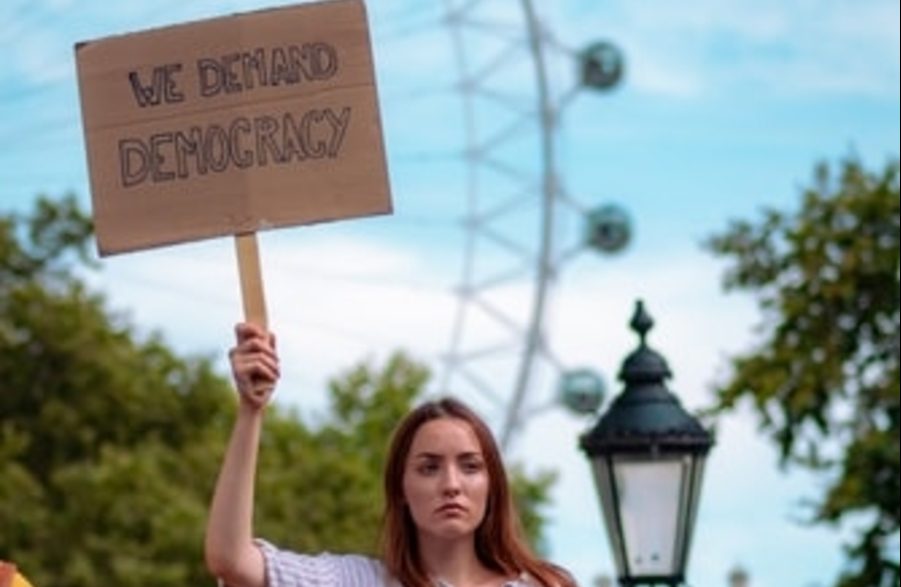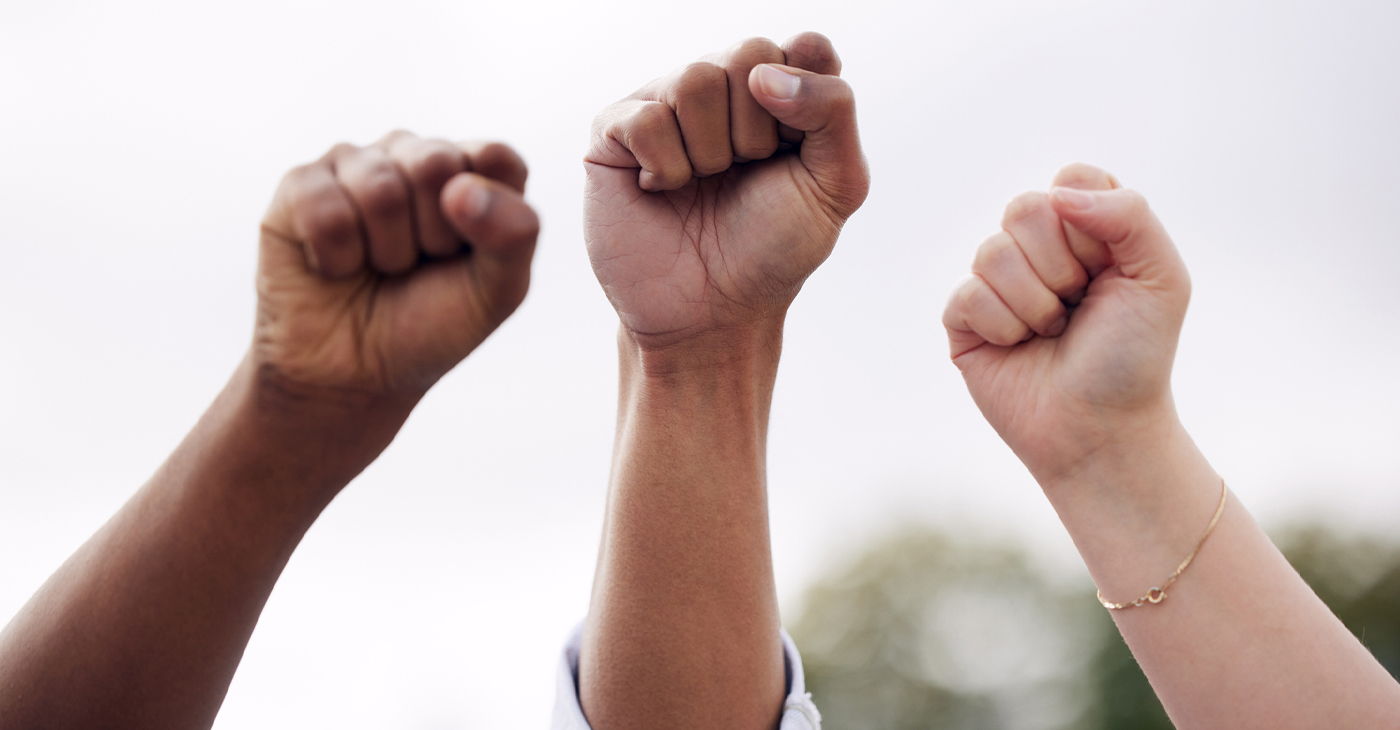Commentary
To Protect Democracy, We Have to Fix the Supreme Court
Fortunately, there are solutions on the table. President Biden has formed a Presidential Commission on the Supreme Court of the United States to study ideas for reforming the Court.

It’s been six months since the Biden-Harris administration began, ushering in an era of hope after four bitter and disheartening years. We have much to celebrate.
At the same time, there are ways in which our future is wavering on a knife’s edge: will we fulfill the promise of a more inclusive democracy, or be dragged backwards by the same forces that tried to reverse the presidential election on January 6?
Will our federal government step up to protect voting rights, or will more and more states suppress them? Can we protect and expand health care?
I am proud of the commitment of advocates who are pushing the Biden-Harris administration and the new leadership in Congress to be their best. But there is another critically important step we must take if we want voting rights, or health care, or workers’ rights, reproductive rights, LGBTQ rights, or any of the rights we are fighting for to survive. We must fix our Supreme Court.
For decades now, the same far-right forces that are fighting justice and equal rights for all our citizens have been working to pack our federal courts. Their crowning achievement has been the capture of the Supreme Court, now dominated by ultraconservatives.
The Supreme Court has dealt devastating blows to the Voting Rights Act. It has made it easier for companies to violate the rights of working people. It opened our elections to unlimited spending by corporate interests. And it is undermining health and safety regulations.
This matters greatly because even as we welcome the opportunities for change that we voted for in electing the Biden-Harris administration and Democratic leadership in Congress, there is a real risk that laws passed now — for progress that real people want — could be eviscerated by a far-right Supreme Court.
We can’t let that happen.
Fortunately, there are solutions on the table. President Biden has formed a Presidential Commission on the Supreme Court of the United States to study ideas for reforming the Court.
They include a first-ever code of ethics for Supreme Court justices – a good idea in any era. They also include proposals that would address the unique moment we are in now when the Court has been so politicized and distorted by partisan interests.
One idea is to set term limits for justices. Another is to add more seats to the Court, which would have a direct impact in easing the current crisis of a “captured Court.”
There will be lively debate over these proposals, including pushback from traditionalists who think we should not mess with the makeup of the Court. But the number of seats on the Court has been changed before – not once, but half a dozen times.
It’s also important to remember that we didn’t get here though a traditional or normal course of events. The current Court makeup was achieved by cynical political machinations of Mitch McConnell, the former Senate Majority Leader.
McConnell refused to hold hearings for former President Barack Obama’s SCOTUS nominee Merrick Garland, thereby stealing the seat for Neil Gorsuch. He did this on the flimsy pretext that it was too close to a presidential election. Then, proving conclusively that he has no shame, McConnell forced through Amy Coney Barrett’s confirmation for the late Justice Ginsburg’s seat even though voting had already begun in the next presidential election.
So, there are clear wrongs to be remedied. The Roberts Supreme Court is losing the confidence of the American people, if it hasn’t lost it already. In its current form it is becoming a political body incapable of protecting the rights of all, interested only in those of the privileged and powerful.
And that means Supreme Court reform needs to be an integral part of our campaigns for justice and equity on all fronts. We are fighting too hard for justice to see progress wrecked on the shoals of a rock-solid conservative Court.
Let’s raise our voices for term limits and more Supreme Court seats at the same time we’re calling for the For the People Act and John Lewis Voting Rights Act, the Equality Act,
immigration reform, reproductive rights, health care and fair pay.
Let’s not trust our future to a captured Court.
Ben Jealous serves as president of People For the American Way. Jealous has decades of experience as a leader, coalition builder, campaigner for social justice and seasoned nonprofit executive
Commentary
Opinion: Lessons for Current Student Protesters From a San Francisco State Strike Veteran
How the nation’s first College of Ethnic studies came about, bringing together Latino, African American and Asian American disciplines may offer some clues as to how to ease the current turmoil on American college campuses over the Israel-Hamas war. After the deadline passed to end the Columbia University encampment by 2 p.m. Monday, student protesters blockaded and occupied Hamilton Hall in a symbolic move early Tuesday morning. Protesters did the same in 1968.

By Emil Guillermo
How the nation’s first College of Ethnic studies came about, bringing together Latino, African American and Asian American disciplines may offer some clues as to how to ease the current turmoil on American college campuses over the Israel-Hamas war.
After the deadline passed to end the Columbia University encampment by 2 p.m. Monday, student protesters blockaded and occupied Hamilton Hall in a symbolic move early Tuesday morning.
Protesters did the same in 1968.
That made me think of San Francisco State University, 1968.
The news was filled with call backs to practically every student protest in the past six decades as arrests mounted into hundreds on nearly two dozen campuses around the country.
In 1970, the protests at Kent State were over the Vietnam War. Ohio National Guardsmen came in, opened fire, and killed four students.
Less than two weeks later that year, civil rights activists outside a dormitory at Jackson State were confronted by armed police. Two African American students were killed, twelve injured.
But again, I didn’t hear anyone mention San Francisco State University, 1968.
That protest addressed all the issues of the day and more. The student strike at SFSU was against the Vietnam war.
That final goal was eventually achieved, but there was violence, sparked mostly by “outside agitators,” who were confronted by police.
“People used the term ‘off the pigs’ but it was more rally rhetoric than a call to action (to actually kill police),” said Daniel Phil Gonzales, who was one of the strikers in 1968.
Gonzales, known as the go-to resource among Filipino American scholars for decades, went on to teach at what was the positive outcome of the strike, San Francisco State University’s College of Ethnic Studies. It’s believed to be the first of its kind in the nation. Gonzales recently retired after more than 50 years as professor.
As for today’s protests, Gonzales is dismayed that the students have constantly dealt with charges of antisemitism.
“It stymies conversation and encourages further polarization and the possibility of violent confrontation,” he said. “You’re going to be labeled pro-Hamas or pro-terrorist.”
That’s happening now. But we forget we are dealing not with Hamas proxies. We are dealing with students.
Gonzales said that was a key lesson at SF State’s strike. The main coalition driving the strike was aided by self-policing from inside of the movement. “That’s very difficult to maintain. Once you start this kind of activity, you don’t know who’s going to join,” he said.
Gonzales believes that in the current situation, there is a patch of humanity, common ground, where one can be both pro-Palestine and pro-Israel. He said it’s made difficult if you stand against the belligerent policies of Benjamin Netanyahu. In that case, you’re likely to be labeled antisemitic.
Despite that, Gonzales is in solidarity with the protesters and the people of Gaza, generally. Not Hamas. And he sees how most of the young people protesting are in shock at what he called the “duration of the absolute inhumane kind of persecution and prosecution of the Palestinians carried out by the Israeli government.”
As a survivor of campus protest decades ago, Gonzales offered some advice to the student protesters of 2024.
“You have to have a definable goal, but right now the path to that goal is unclear,” he said.
About the Author
Emil Guillermo is a journalist and commentator. A veteran newsman in TV and print, he is a former host of NPR’s “All Things Considered.”
Activism
Oakland Post: Week of May 1 – 7, 2024
The printed Weekly Edition of the Oakland Post: Week of May 1 – 7, 2024

To enlarge your view of this issue, use the slider, magnifying glass icon or full page icon in the lower right corner of the browser window. ![]()
Activism
Oakland Post: Week of April 24 – 30, 2024
The printed Weekly Edition of the Oakland Post: Week of April 24 – 30, 2024

To enlarge your view of this issue, use the slider, magnifying glass icon or full page icon in the lower right corner of the browser window. ![]()
-

 Community3 weeks ago
Community3 weeks agoFinancial Assistance Bill for Descendants of Enslaved Persons to Help Them Purchase, Own, or Maintain a Home
-

 Activism4 weeks ago
Activism4 weeks agoOakland Post: Week of April 3 – 6, 2024
-

 Business3 weeks ago
Business3 weeks agoV.P. Kamala Harris: Americans With Criminal Records Will Soon Be Eligible for SBA Loans
-

 Activism3 weeks ago
Activism3 weeks agoOakland Post: Week of April 10 – 16, 2024
-

 Community3 weeks ago
Community3 weeks agoAG Bonta Says Oakland School Leaders Should Comply with State Laws to Avoid ‘Disparate Harm’ When Closing or Merging Schools
-

 Community2 weeks ago
Community2 weeks agoRichmond Nonprofit Helps Ex-Felons Get Back on Their Feet
-

 Community2 weeks ago
Community2 weeks agoOakland WNBA Player to be Inducted Into Hall of Fame
-

 Community2 weeks ago
Community2 weeks agoRPAL to Rename Technology Center for Retired Police Captain Arthur Lee Johnson





















































